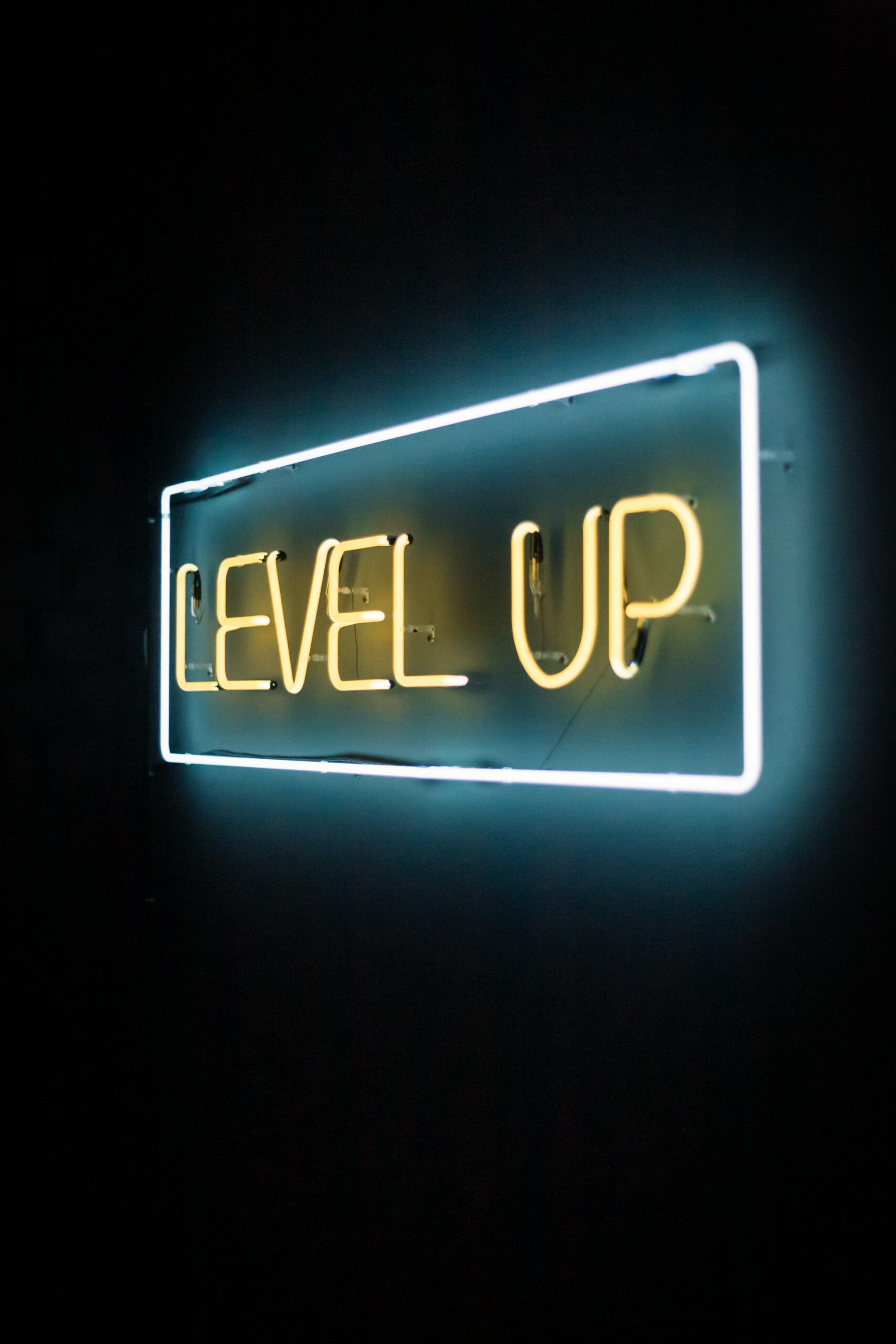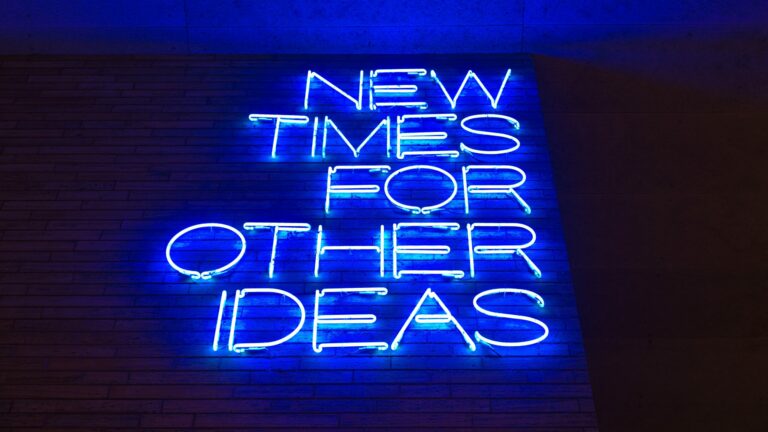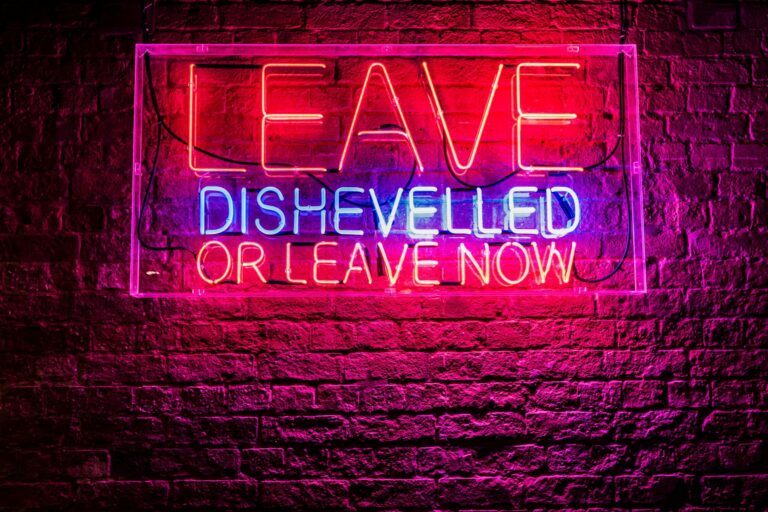Digital Detox #6: Build Back Better
What would it mean to build back better in the wake of Covid-19? When I think about the scope of the problem, all that there is to manage and to repair, I confess that I shrink from it. It feels exhausting. And yet, it also seems urgent, like something that would be irresponsible to step back from, to leave in the hands of others. (I also might be a control freak.) I spend a lot of time thinking about what the university will look like on the other side of the pandemic, and I admit that I find it difficult to be optimistic about it much of the time. For all the reasons we’ve talked about so far — the rise of surveillance tools in all aspects of education, the circumscription of the learning management system, and this moment of disaster capitalism where the ghouls descend upon our institutions — things seem bad.
And yet. Never have more students and faculty been exposed to the idea of digital pedagogy. Maybe they had bad experiences, maybe they hated every minute of it, but they know it’s there, and I bet they have opinions about it now. Before the pandemic, on our campus anyway, it felt impossible to prompt a conversation on what made for good digital teaching. I might not agree with every choice my colleagues make now — indeed, we might disagree pretty passionately — but I find the presence of the conversation wildly heartening. And it’s true, we can’t always convince people to look to the research for help, but you know what? Scholarly teaching in face-to-face modalities often feels pretty thin on the ground, too, so here we are. Indeed, I think people care about this stuff now more than ever before, and even if the thing they care about most in the world is getting back into their classrooms and never touching Moodle again, that at least reflects an experience with digital pedagogy that so many folks didn’t have before.
Maybe I just have to believe my life has meaning, but it seems to me that this is something to build upon. Everyone now has experience in the online classroom, and I think this is a good place to start. Let’s put aside, for a second, the distinction between “crisis teaching” and “online teaching” — yes, this is a meaningful distinction as we write and theorize about this time, but I think for people on the ground, it isn’t that helpful. We easily descend into a “no true Scotsman” fallacy here: your bad experience of teaching and learning online isn’t “real” online teaching and learning, so I don’t have to engage with it. But for me as the instructor on the ground, it’s my only experience, and if you don’t engage with me about it in those terms, you miss out on an opportunity for a meaningful conversation.
I also think that there are concepts we all agree on, even administrators (who, you may have noticed, my natural state is to be in a deep state of antagonism towards). Chief among those is care. I don’t believe the institution is structured to consider care, but I do believe individuals can and do want to enact care for students. Likewise, I don’t actually think any individual human within our institutions sets out to abuse student data or privacy or to line the pockets of the nearest edtech vendor. Which makes it all the more remarkable that, time after time and agreement after agreement, we choose to do just that. How do we get from the intention to the execution, and why does it seem to always go so wrong?
I have been working really hard, since March when we pivoted to online and it became clear that faculty would make it through the transition not with the help of our institutions, but through mutual aid, to remind myself that the institution cannot love me (though, as I keep noting, it could try). Lately, though, I’m trying to imagine what a university could look like with an ethic of care as its guiding principle. Particularly, since its the part of the institution I know best, I’m thinking about edtech procurement and support undertaken with care at the centre. It seems to me that often when we see the most egregious failings of educational technologies, we are seeing failures — or misapplications – of care. Last year, I talked a lot about what I thought an ethics of care philosophy; this perspective is rooted in feminist theory and demands a recognition and accountability for the dependencies and interdependencies — and the power dynamics at play therein — of our relationships. We are responsible to each other. How do we demonstrate that? I began, last year, to think about what this would look like in the context of procurement:
So if we think about the choice to adopt a new educational technology in the classroom, an ethics of care philosophy would demand that we recognize the role this tool will play in the learning of our students and imagine the impacts it might have, that we offer those same students the opportunity to learn about the pros and cons of the technology, and that we take into account things like financial pressures and data privacy in making a decision. Centring an ethics of care means centring the relationship with the student and their learning, over and above other interests like those of the institution or a particularly pushy sales rep or even our own preferences. It’s a way of thinking about our work that centres relationships with students first and foremost.
Me, last year.
Last year, though, I was thinking mostly of the individual instructor: how do you make a difficult or complicated choice in the classroom, on behalf of your students. I wanted to offer a rubric for thinking it through. But after the year we’ve had, I think it’s time to demand this same kind of relational thinking and accountability of our institutions as we expect of ourselves.
It’s my opinion that it’s the role of critical digital pedagogy to intercede in these conversations, to ask difficult questions and to hold folks accountable. And yet, how many people with expertise in digital pedagogy — let alone critical voices! — get to be in the room for the procurement discussion. I’m sure it happens at some institutions, but it isn’t common. It seems sometimes like IT choices — even those that directly and deeply impact teaching and learning — are treated like discussions about fixtures and fittings. But of course we know that the technologies we have access to shape our teaching. I go way back to the beginning of this detox: it’s pointless to talk about how technology shouldn’t shape pedagogy, because it does, and it always has. So why aren’t these conversations considered the scope of the academic?
Our institution is in the middle of a discussion about adopting a new technology, and it’s very clear that the folks in charge thought they were just purchasing a logistical solution to a problem. They seem surprised that faculty have opinions about it. They wouldn’t have to be surprised if the conversations were more integrated in the first place. These tools, whether LMS or videoconferencing or textbook provider, impact our every working moment as faculty, and they impact our students even more directly. These voices aren’t impediments to getting things done: these are the critical stakeholders (to use Board lingo). None more critical.
If there’s one thing I hope comes next, it’s institutional restructuring that recognizes the integral function of our digital services in how we teach and learn. The fact is we’re probably never going back to the way we used to do things: every new variant, every delay in the vaccine plan, should make it clear that we live in a world of ifs and buts. The choices about the tools we use to conduct our teaching and our learning should be in the hands of academic governance, and the people who use the tools every day — students and faculty alike — should be at the table. And, ideally, some of those should be critical voices, too. It’s been comfortable for a lot of folks who don’t like or want to engage with digital tools to imagine there’s the “real work” of teaching and learning on one hand, and the “button pushing” of edtech on the other. I’m left wondering, eleven months into the pivot to online, how is that distinction working out? It seems to me that we rolled into this pandemic with academic leadership the world over who didn’t previously engage meaningfully with the folks supporting the learning technology, or the folks using it, who found themselves caught without the necessary expertise to navigate this crisis. It’s time to rethink how we organize this labour.
I guess the truth is that the other thing I’m pondering right now is how we move past a lot of the feelings of frustration and betrayal we all seem to feel at our institutions these days. Academic Twitter, once the wittiest place on the internet, is now a stone-cold bummer. Many of us are struggling with feelings of overwork and burnout, and institutional austerity measures, supports for the kinds of tools that don’t enact care, marketing rhetoric, and more can leave us feeling completely abandoned. I’m increasingly interested these days in the concept of moral stress and how it contributes to burnout for many of us. I started to talk about this a little in last week’s live chat. It’ s concept that has been resonating with me a lot for a few months now.
Moral stress theory emerges from the idea of moral injury, which we typically talk about in terms of health care or military service. When you are forced to take an action for the sake of your role that contravenes your deeply-held core values, you experience a trauma called a moral injury. This has serious mental health ramifications, because it a challenge to your understanding of yourself as a person. It’s clear why we’re seeing more moral injury research at the moment: hospital policies around Covid-19 are leading to traumas for doctors. Obviously I ain’t fighting a war. But there’s a version of this idea called moral stress, which I understand to be the non-traumatic iteration, that does feel really familiar. I’m not the first person to connect moral stress to education, though I’m hoping to see more work emerge about this specific Covid-19 moment and these ideas. The fact is that moral stress at work can lead to burnout. It’s hard to work in a way that contravenes your core values for extended periods of time.
The good news is that moral stress presupposes the possibility for moral repair: there is a way to rebuild our relationships to our institutions — if there is will. Indeed, attending to moral stress experienced by staff, faculty, and students throughout the pandemic caused by institutional decisions is a critical part of what it means to build back better, because moral repair requires the kinds of structural changes we’ve been talking about. Repair, though, requires acts of acknowledgement: do our institutions see us (and our students) as moral equals towards whom they own acknowledgement and repair? I am not sure I am optimistic about that.
Acknowledging responsibility. Moral repair requires that those who are truly responsible for something acknowledge that responsibility. This is not the same as laying blame. In acknowledging responsibility, the person or institution recognises that others have placed reliance on them and have been let down. Acknowledging responsibility reinforces the view that the norms are valid, and it is reasonable to rely on them.
Suzanne Shale, “Moral injury and the COVID-19 pandemic: reframing what it is, who it affects and how care leaders can manage it.”
I read accounts on Twitter every day from folks who feel too precarious, too single-out, too marginalized, too visible to be able to speak openly within their institutions of the stress and burnout they’ve experienced. What if, without needing to lay blame, we could speak openly about how austerity budgets and resource allocation have impacted our affective experiences of our life and work? Perhaps that would be the first step to the kind of structural change that has to come if we aren’t just going to return to the status quo.
I don’t know what Return to Campus discourse looks like where you are, but I see an awful lot of institutions who seem eager to return to a business as usual that, as we discussed last week, didn’t work then and won’t work in the future. If better is possible, we need to get to work.
Not a lot about the digital here this week, I acknowledge, though I think it is so embedded in the work we all undertake these days that maybe its a given. But if there’s one thing I’ve learned this year, it’s that detoxifying our relationships to technology is a structural, not a personal, problem. Sure, I can send you a thousand emails telling you how to use the Screen Time functionality on your phone or to remind you to close your computer at the end of the day but, like, you already know how to do that (or at least you for sure know how to Google it). Abstinence detoxes are simultaneously really freaking obvious — yes, playing word games and scrolling through Reels instead of sleeping is bad for me, news at eleven — and really stratified in terms of who can access them. Do you feel able to walk away from your email, or is your workload so heavy, or perhaps your position so precarious, that you don’t dare? In that case, it’s not your problem to solve alone.
The choices that are made, often on our behalf but without our consent, about the technologies we bring into the classroom and have imposed upon us and our students, are too often not made based on care. They fill some pressing need, they fit on the right budget line, and they promise something shiny. Until the decision-making spaces are populated with people with both expertise, experience, and critical contexts — students and staff alike — this probably won’t change. But edtech procurement and the structural rethinking that needs to happen there is one small example of the hard work of moral repair that needs to come if our institutions are capable of healing from this year.
I come back to the idea I started today’s post with: never have so many people had opinions — any opinion! — about teaching and learning online. We do have a moment here, if we can find the energy to harness it, and if we can promise a more equitable field to engage in.
I’ll be honest: I’m tired of bumming myself out. Next week is the conclusion of the Detox, and a Manifesto for the Future. So what do you think, as we look toward the great whatever comes next: how do we build back better? And is there space for moral repair, or will we all barrel back towards the status quo?
In the meantime, look after each other. It’s always — only — about mutual aid.






